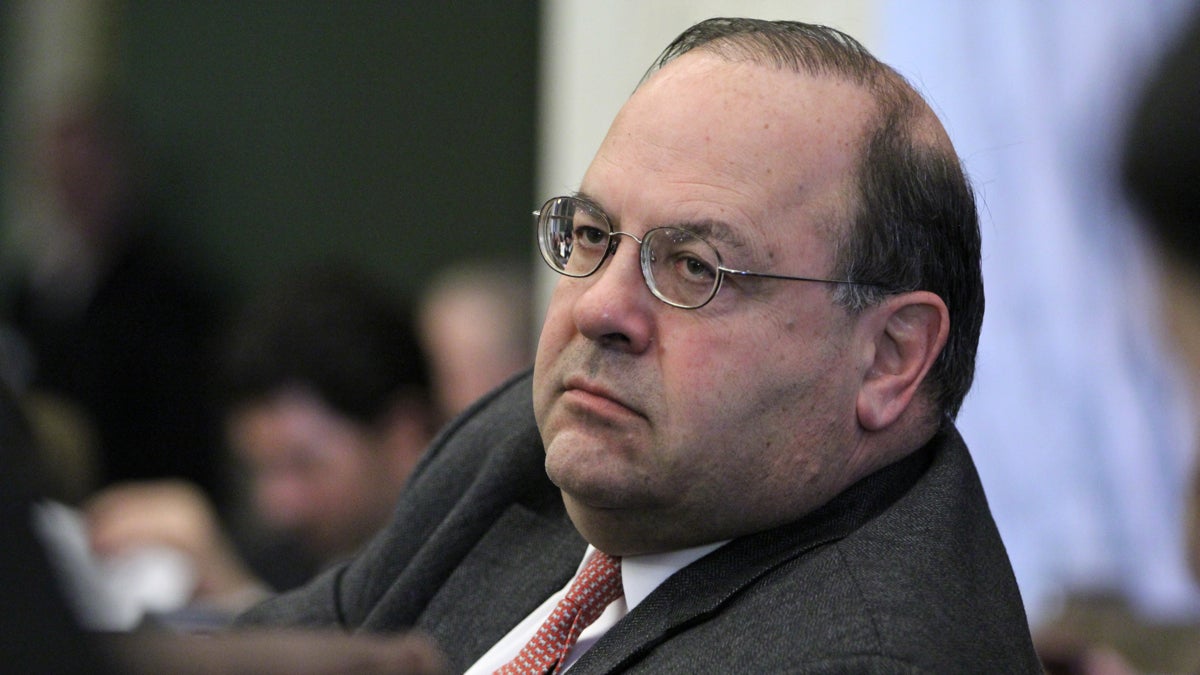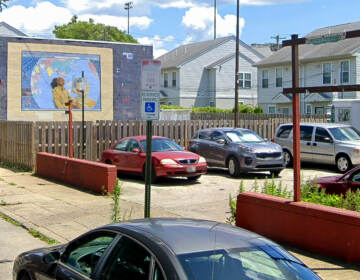Can Allan Domb’s big idea for tax deadbeats win over City Hall?

Allan Domb came into office with one big item on his policy agenda: Make the deadbeats pay.
The councilman estimates that the City of Philadelphia is owed almost $500 million in unpaid property taxes and $250 million in utility fees—money that could go to cash-strapped schools or pensions.
Domb has his sights set on a nifty fix: Tax lien securitization, which would turn tax debts with questionable payback prospects into a guaranteed, lump-sum payment via a bond sale—at least in theory.
Last summer, the city asked private vendors to come up with a plan to sell the city’s tax liens through a Request for Proposals (RFP). Nine replied, and some proposed securitization schemes like the one Domb wants. A final decision will be made later this month.
This is Domb’s big moment. The policy proposal he ran on, the very essence of his appeal—bringing a businessman’s acumen to municipal policy—is being put to the test. If the city selects one of the securitization proposals, it will be a major victory for the second-year councilman.
But not everyone is as confident in the idea as Domb. Council President Darrell Clarke worries the proposal—along with the Revenue Department-orchestrated sheriff sales—could hamstring the city’s still nascent Land Bank.
In his five years as council president, Clarke has never delivered a floor speech on a proposed bill, preferring to preside over council’s legislative debates than participate in them. But last Thursday, Clarke surrendered his gavel to deliver an unprecedented floor speech.
“The simple reality is that the same people who we are asking to oversee the securitization program…[are] the people in government who don’t have an ear to the commitments that were made to the Land Bank,” said Clarke. “My issue is not around the strategy [so much] as around the notion that people within government should ultimately make the final decision on how to proceed in a fair and equitable way.”
SECURING SECURITIZATION
The alchemy of turning a debt (like a tax lien) into a bond (or a “security”; hence “securitization”) can get a little tricky. First, the city would transfer all of the liens into a city-run trust. That trust would hire debt collectors to service the liens. At the same time, the trust would also bundle the liens into bonds, effectively giving investors the chance to bet that the collection agency would do a better job getting the tax delinquent property owners to pay than the city. As the liens get paid, the trust would take that money (after paying debt collectors) and give it to the bondholders to pay off the lien-backed securities. To the extent there is any money left over after all that, it’d go back to Philadelphia.
Despite the complexity, Domb’s a fan.
“This is a homerun, no one is going to get hurt,” Domb said. “This is a great, great system for collecting delinquent real estate taxes from those who owe money in Philly and choose not to pay. We are sitting on pins and needles waiting for the administration to take a decision.”
But Clarke’s not the only council member harboring doubts. Clarke said he just wanted everyone to take a step back and make sure the city’s bureaucrats are responsive to the priorities set by city council, but Councilwoman Maria Quiñones-Sanchez went even further.
“I’m not for any residential lien sales—I can barely stomach the commercial ones,” Quiñones-Sanchez told PlanPhilly, when asked about Domb’s plan.
Quiñones-Sanchez is especially skeptical because the city still hasn’t dealt with the fallout from the 1997 tax lien securitization under then-Mayor Ed Rendell. In a 2013 report, the city controller’s office described it as “the worst-case scenario” for such a sale. The consequences are still felt today.
Some investors who purchased bonds in the 1997 securitization still haven’t been fully paid, effectively giving them private liens to replace the tax liens on properties that still haven’t paid. Those non-performing properties cluster in high-poverty areas, like Clarke and Sanchez’s districts.. To get those properties back for development in the Land Bank, the city would have to pay off the old bondholders first. The Land Bank’s strategic plan estimates that would cost $18 million. For perspective, the still-fledgling land organization’s budget is about a sixth of that amount.
Clarke and Sanchez’s fears are also driven partially by their experiences with the sale of city owned land to private individuals, which has interrupted the process of assembling properties within the Land Bank. Council president Darrell Clarke wrote an op-ed in the Philadelphia Inquirer articulating concerns that the Revenue Department had sent properties to sheriff sale that were earmarked for the Philadelphia Land Bank.
“It appears that there are two facets of the government, one whose sole responsibility is aggressively collecting taxes and the other side is working on a strategic plan,” Clarke said in an interview with PlanPhilly. “They both need to, along with the advocates, get on the same page.”
Domb’s ambitious securitization proposal requires the buy-in of city council, and the councilman has sought to allay these fears.
“Securitization will help Philadelphia and its Land Bank interests,” Domb said at last week’s council session in a speech that prompted Clarke’s unusual rebuttal on the floor. “[It] gives the city flexibility and control. We’re in control…the Land Bank is a partner in the process. A securitization is the solution to your [Clarke’s] resolution and accomplishes a number of goals this body.”
In Domb’s telling, his securitization proposal differs from the Rendell-era scheme because back then the city actually sold the liens to third parties. Under his proposal they would be placed into a trust—so the city still owns the liens—but then the ability to service the liens would be sold to a third party.
Domb argued that in his formulation, the city would enjoy far more control. Domb also said that the kind of liens that go into the trust could be screened, allowing, for example, properties owned by senior citizens or properties intended for the Land Bank to be withheld. What’s more, vacant property is usually the least redeemable type of lien so there wouldn’t even be a temptation to put them into the trust. hey would just be earmarked for the Land Bank instead..
Despite Domb’s assurances, other council members remain leery. Quiñones-Sanchez wrote to the mayor asking that properties in her district be left out of such a proposal. Others representatives also said they are still undecided about Domb’s plan. Councilwoman Cindy Bass’s office, whose district includes many of the properties obstructed by the Rendell-era tax lien sale, said she “understands there are concerns” and that she is still making up her mind.
Mayor Jim Kenney’s, for his part, is playing his hand close to the vest. The mayoral administration said that securitization is among the options presented in the nine RFPs, but that nothing will be done to imperil future Land Bank acquisitions.
“The Revenue Department will not proceed with tax lien sales or any other enforcement that would hinder acquisitions by the Land Bank on eligible properties that the Bank seeks to acquire,” wrote mayoral spokesman Mike Dunn in an email to PlanPhilly.
But Domb remains totally convinced that securitization is the answer. He said the city’s tax collection rate is almost 92 percent and this could boost it up three points, netting the city perhaps as much as $100 million initially and then bringing in another $25 million or more annually. He said that of the small sliver of the Philadelphia property owners who don’t pay taxes, a majority are commercial or investment property owners, and 10 percent of them don’t even live in the city.
And if the rest of council still doesn’t seem thrilled by the idea, he’s still got a few weeks to convince them.
“We recognize that records may not be totally accurate and revenue isn’t going after it in an organized fashion. We get all that,” he said. “The difference is that this method puts the City of Philadelphia in control. This method cleans all that up. This method is the answer.”
WHYY is your source for fact-based, in-depth journalism and information. As a nonprofit organization, we rely on financial support from readers like you. Please give today.







